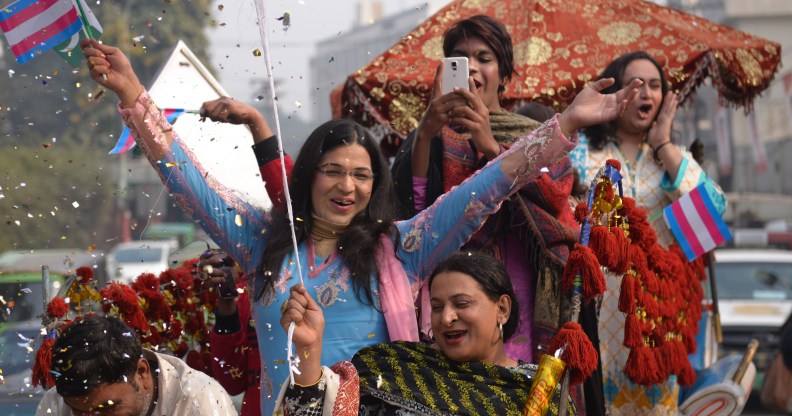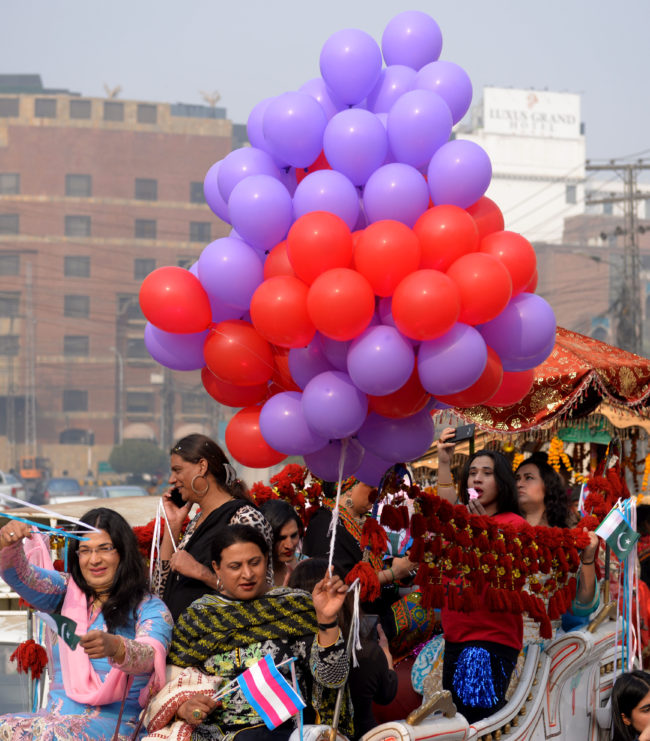Transgender Pride march takes place in Pakistan

People take part in Pakistan’s first Transgender Pride parade to demand for the implementation of transgender rights bill in Lahore on December 29, 2018. (ARIF ALI/AFP/Getty)
Trans people in Pakistan have called on the government to implement legal protections as they staged the country’s first Transgender Pride march.
The first ever rally for transgender rights in Lahore, Pakistan took place on December 29, with transgender campaigners calling on the government to push ahead with reforms.
According to Pakistan’s Express Tribune newspaper, the campaigners pressed the government to implement the transgender rights reforms that were backed by lawmakers earlier in 2018.
“This is the first time in the history of Pakistan that transgender persons have been given their rights.”
— Trans campaigner Neeli Rana
Trans campaigner Neeli Rana told the outlet: “We are thankful to the government on passing the bill.
“This is the first time in the history of Pakistan that transgender persons have been given their rights.
“It is our right to protest and take to the streets. Now it is the government’s responsibility to implement this bill because in the past, [bills have been] passed but never practically implemented.”
The Transgender Persons (Protection of Rights) Act, passed by Pakistan’s Parliament in May 2018, allows people to self-identify as male, female or non-binary and to have that identity recorded on official documents, including passports and ID cards.

People take part in Pakistan’s first Transgender Pride parade to demand for the implementation of transgender rights bill in Lahore on December 29, 2018. (ARIF ALI/AFP/Getty)
It guarantees citizens the right to a gender identity defined as “a person’s innermost and individual sense of self” that can “correspond or not to the sex assigned at birth.”
The bill also prohibits discrimination in public places, including schools, hospitals and on public transport, and ensures trans citizens are given the right to vote in elections and run for office.
But despite the legislation, transgender people still face extreme hostility in Pakistani society.
A trans woman was tortured and shot dead in Peshawar in August, while another was burned alive in Sahiwal in September.
Pakistan still maintains anti-LGBT laws
Despite advances for transgender people in Pakistan, it is still illegal to be gay in the country under a British Colonial-era law that has never been repealed.
Under the law, people who have gay sex can technically be jailed for up to ten years, while gay people have no legal protections from discrimination.
LGBT+ issues are still heavily stigmatised in the country, with a 2013 poll finding that 83 percent of people believing homosexuality should not be accepted by society.
Despite the decriminalisation of gay sex in neighbouring India, attempts to address the issue in Pakistan have gained little traction.

